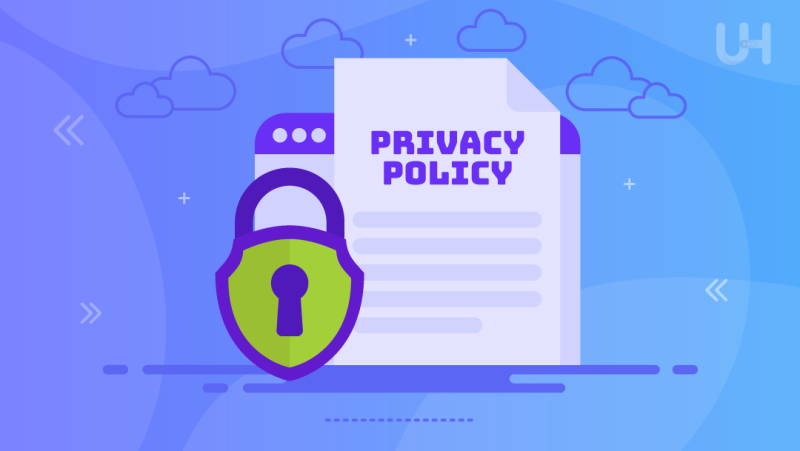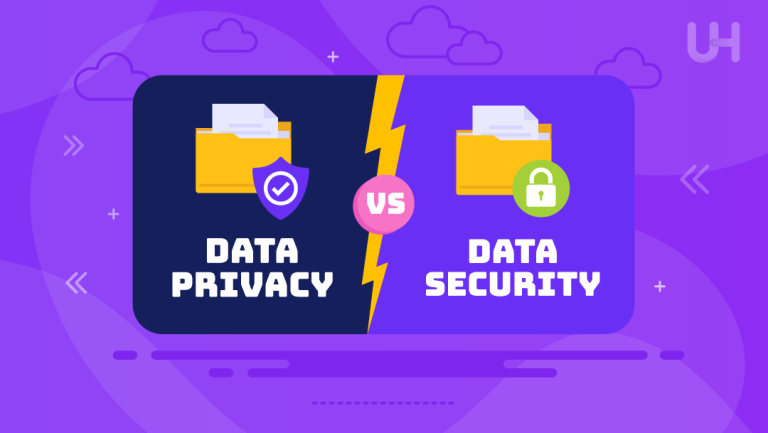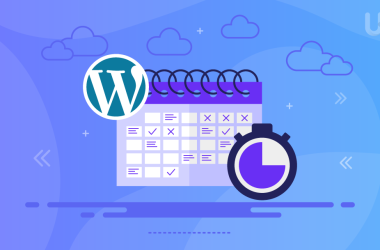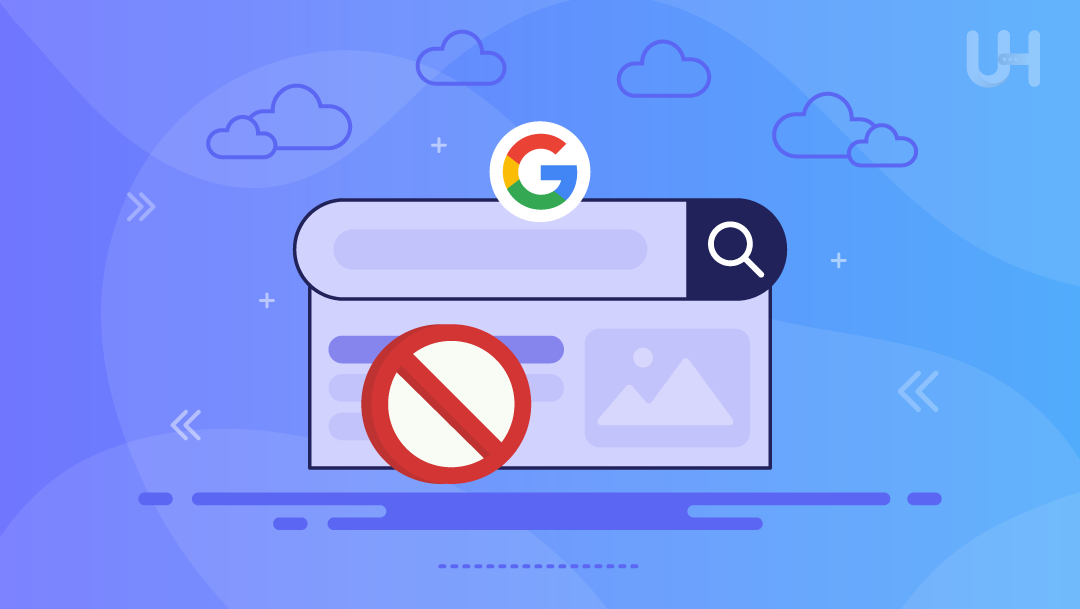A privacy policy should be part of every website or online service intended to collect data. It is an agreement with your audience, where you explain to them how their personal information will be treated. As users grow more concerned about data privacy, they want clarity from each platform on how data will be collected, stored, and shared. A good privacy policy goes beyond just being a required legal document in building trust and credibility among your visitors.
In the article, we will discuss what a privacy policy is, why your website needs one, key elements to include, and its importance under global data protection laws. We will also give examples of real cases where enterprises were fined, focusing on some practical advice about how to create one for your website or app.
What is a Privacy Policy?
A privacy policy is legal documentation outlining the website, application, or organization’s practices. These can involve collecting users’ information, usage, storage, and protection. The user is given transparency of the practices involving data handling. Hence, they are knowledgeable with informed decisions on managing their information.
Key components of a privacy policy include:
- Data Collection: It lists the types of data collected, including names, email addresses, payment information, and browsing behavior.
- Purpose of Data Use: Clarifies why the data is collected, such as for improving services, marketing, or fulfilling user requests.
- Data Sharing: This defines whether data is to be shared and with whom. It could be a third-party service or even a partner.
- User Rights: Describe the rights users have with respect to accessing, correcting, or erasing data. It also describes how such a request can be made.
- Data Protection: It explains the measures taken to secure users’ information on this website against possible breaches or theft.
- Cookie Usage: Explains how cookies or other tracking technologies might be used in monitoring and performance.
A privacy policy provides legal protection and reflects your commitment to user data security and regulatory compliance.
Why is Privacy Policy Important for Your Website?
A website or application dealing with user information should contain a privacy policy. It serves a number of purposes, all of which are important. Here’s why one is indispensable:
- Legal Compliance: These regulations, such as GDPR, CCPA, and many more, demand a privacy policy for every business. The penalties imposed due to non-compliance with these acts can be huge and bring legal liabilities.
- Building Trust and Transparency: A clear privacy policy gives users confidence in handling their information, thus creating trust and credibility. Transparency could help gain users’ loyalty and increase their engagement.
- Protecting Your Business: A privacy policy can also be a form of insurance. It outlines the data use terms and may protect your business from disputes or allegations of misusing user information.
- User Awareness: It also informs users of their rights and how they may express them, such as opting out from data sharing or rectifying and erasure.
- Adapting to Evolving Regulations: It ensures that your website remains compliant with and ready for global data privacy law changes.
A privacy policy is not an option but an obligation to protect users and businesses while complying with dynamic data protection standards.
What to Include in a Privacy Policy?
A good privacy policy should address important elements that can be used in both user protection and legal fulfillment. The essentials to include in the list below are:
- Introduction: Mention why a privacy policy is needed and inform users of your commitment to protecting their data.
- Information Collected: List the data types collected, such as personal details (including name and e-mail), payment details, and other usage data that may include an IP address or cookies.
- Purpose of Data Collection: Explain the purposes for which data is collected, such as provision of services, improvement of the user experience, or marketing.
- Data Sharing and Third Parties: Describe whether personal data is transferred to third-party providers, partners, or affiliates and what purposes it serves.
- User Rights: Notify users of their rights to view their data, rectify inaccuracies in data, erase or restrict processing, and withdraw consent to data processing.
- Data Retention: Specify how long you keep personal information and how you decide what retention periods to apply.
- Security Controls: Describe user data protection methods like data encryption, firewalls, or secure practices on data storage.
- Cookies/Tracking Technologies: Make known to the users how cookies and other tracking technologies work, their intended use, and how these cookies can be controlled or cleared from the client’s computer.
- Policy Update: Users should know when major changes will occur concerning their privacy.
- Contact Information: Provide contact information for users to reach you with concerns or questions about your privacy policy.
These factors will ensure that your privacy policy is legally compliant and user-friendly, demonstrating respect for transparency and data protection.
Privacy Policies Under Data Protection Laws in Different Countries

Privacy policies are central in ensuring compliance with legal enactments in different jurisdictions to protect information worldwide. Indeed, business entities observe varying legal obligations to ensure that user data collection, processing, and storage are done responsibly.
The European Union’s General Data Protection Regulation (GDPR)
It is a mouthful of legibility concerning accountability and responsibility in handling or being in possession of personal data. The GDPR from EU residents clearly calls for elaborative approaches to privacy. It requires clear policies on identifying an organization’s data collection information, using such personal data, and the bases. Organizations must make sure that the information available includes data on retention periods of any descriptions that may be performed, data transferred, and exercises of rights about access, erasure, and possible corrections. Clear information is also to be provided about the procedure to withdraw consent and about lodging complaints with supervisory authorities.
United Kingdom General Data Protection Regulation (UK GDPR)
After Brexit, the UK GDPR was implemented, which shared numerous similarities with the EU’s GDPR. In this respect, organizations that process information for residents in the UK must have a comprehensive policy regarding the processing of information and the rights of users. The organization is responsible for ensuring that visitors to its website have easy access to these policies and understand personal data handling. This includes clear details about consent mechanisms and how to contact the organization for data privacy concerns.
California Consumer Privacy Act (CCPA) and California Privacy Rights Act (CPRA)
CCPA and CPRA require businesses to give notice when collecting data across California residents through their services/products. Whichever category is collected has to be delineated explicitly. If data must be sold, such details are noted; afterward, this can offer a detailed “privacy policy.” This further detail shall discuss users’ rights pertaining to the same information concerning how it may be opted out. Businesses are further called upon to enlighten consumers about their rights to access, delete, or opt out of data sales in order to bring about transparency and consumer control.
Secure Your Website and User Data!
Are you prioritizing data privacy and security for your website? UltaHost offers a reliable European dedicated server to protect your users and ensure GDPR compliance. Our servers ensure your website is not only secure but also efficient.
Brazil’s Lei Geral de Proteção de Dados (LGPD)
The LGPD in Brazil requires that a privacy policy be clear and accessible. It must indicate the purpose of collection, the duration of processing, and the rights to correct or erase data. Furthermore, the LGPD demands explanations of shared data and the principle of transparency in overall activities. Hosting your website on a Brazil Dedicated Server ensures compliance by offering data localization and solutions tailored to LGPD requirements.
South Africa’s Protection of Personal Information Act (POPIA)
POPIA obliges a business to maintain records of processing activities besides notifying users at the collection stage of personal information. The privacy policies shall describe under POPIA the purpose for which the data will be used, the rights of the subjects, and the measures taken by any user information service provider to protect user information. Hosting your website on a South Africa Dedicated Server ensures compliance with POPIA by providing user data and privacy. Such notification needs to easily devolve upon users to maintain compliance and user awareness about their rights to privacy.
Canada’s Personal Information Protection and Electronic Documents Act (PIPEDA)
PIPEDA places immense importance on the clarity and availability of privacy policies. In other words, an organization should deliver information in readily understandable forms that assist users in knowing and understanding data dealing practices. These policies, covering information collection, storage, and usage, must be readily available, easy to understand, and indicate how inquiries or complaints can be made regarding PIPEDA to the organization. With PIPEDA, a business remains liable to answer for user information through transparent approachability.
Children’s Online Privacy Protection Act (COPPA)
COPPA protects the privacy of children under 13 years of age. Every website or online service directed to this population must post a notice of its privacy policy describing the collection and disclosure practices, notify parents of this practice, and allow them to review, edit, or delete their child’s information. COPPA also requires clear contact details for queries and ensures that parents retain control over their child’s data by offering opt-out mechanisms.
These regulations are important for businesses to demonstrate their concern for user privacy, avoid possible penalties, and build trust with their audience.
Legal Fine Examples
An inadequate and non-clearly spelled-out full privacy policy may result in heavy fines or even serious legal implications. For online stores handling payment data, choosing a secure PCI-compliant hosting greatly reduces the risk of breaches and penalties. The review of some high-profile cases and an understanding of possible fines will provide insight into why it is so crucial to become compliant. The following study on an example of a privacy policy by major global corporations indicates what may be at stake for an organization due to non-compliance.
- Meta (Facebook): The record fine of €1.2 billion ($1.3 billion) against Meta was over the transfer of data from European Facebook users to the United States, which also breached the strict rules on international data transfers under the GDPR.
- Amazon: Amazon was fined €746 million ($780.9 million) for failure to obtain appropriate consent from its users before collecting personal data.
- WhatsApp: WhatsApp, owned by Meta, received a €225 million ($247 million) fine after being found to have unclear policies and to have failed to provide transparent insights into how user data is shared or utilized.
Examples of Fines Under Major Privacy Laws
Non-compliance with privacy regulations by organizations incurs stiff penalties, varied in different jurisdictions:
- GDPR: It advocates an infringement fining rate of up to 2% of annual global revenue, or $12 min – €10 million, whichever amount is bigger.
- CCPA: A fine of $2,500 per non-intentional violation and $7,500 for the intentional violation and also in the case of processing children’s data.
- CPA: up to $2,000-$20,000 fine per violation.
- COPPA: $43,792 maximum per violation.
- CTDPA: $5,000 maximum for willful violation.
- HIPAA: Fines for Tier 1 begin at $100 per violation and cap at $50,000. Fines for Tier 4 have no maximum cap.
- VCDPA: up to $7,500 civil penalty per violation.
- PIPEDA: Companies found liable are also lined, a fine that runs into CAD 100,000 ($79,815)
- Quebec’s Law 25: Fines can range between $15,000 and $25,000,000, or 4% of worldwide revenue, whichever amount is greater.
These cases and examples have shed light on how transparency and compliancy call for the very core of enterprises: clear, accessible privacy policies. A formidable privacy policy protects businesses against impending legal consequences by fostering consumer trust concurrently.
How Can You Make a Privacy Policy for Your Website or App?
Set up a privacy policy for your website or app. It is an important aspect of building trust and attaining legal compliance. You can write a privacy policy in various ways depending on your resources and expertise. However, no matter how you do it, your policy should clearly and concisely explain what users can expect regarding their data. It should also comply with applicable data protection regulations to protect your users and your business.
Use a Privacy Policy Generator
The privacy policy generators are essential tools online that help your business develop a personalized privacy policy in minimal time. They generally base their guidelines on a series of questions related to how data is collected from your website. This includes information such as what type of information and what will become of it, along with who the third-party affiliates are. They’ll work out a policy for you to meet your needs while the major legal compliances are considered. As convenient and efficient as these generators are, it is equally important that you go through the generated policy for its correctness and relevance to your operations.
Use a Free Template
You will have a good grounding for writing a privacy policy on which you can base your work using a free template. Templates often contain generic language and standard sections like the collection of data, user rights, and security practices. You will need to modify the template for your business practice and also make it fit into broader legal frameworks that apply to you. Relying entirely on a template without modification can result in non-compliance gaps. Thus, this approach could be more workable for smaller enterprises with basic data management operations.
Do-It-Yourself
Businesses with unique or complex data handling practices will be better off drafting a privacy policy from scratch. This would afford them the absolute freedom to clearly explain how they collect, use, store, and share information, considering specific regulations. The latter approach affords maximum control and customization but usually requires either extensive knowledge of the legalities involved or consultations with a lawyer to avoid some oversights.
No matter which route you take, regular updates to your privacy policy are crucial for compliance with changing laws and transparency for users.
Conclusion
More than a mere legal formality, a privacy policy fosters trust between your audience and your website. It shows them your seriousness about their personal data. Whether generated by a generator, using a template, or drafted from scratch, your privacy policy needs to be clear, transparent, and compliant with applicable laws. By investing a bit of time in crafting a good privacy policy and keeping it updated, you’ll avoid legal risks while gaining your users’ trust.
Enhance your website’s privacy and compliance efforts with a UK Dedicated Server from UltaHost. With secure hosting solutions tailored for data protection and GDPR compliance, you can effortlessly safeguard user information and build trust.
FAQ
What is the purpose of a privacy policy?
It explains how user data is collected, used, stored, and shared while ensuring legal compliance.
Do small websites need a privacy policy?
Yes, any website collecting user data should have one to meet legal requirements and build trust.
What happens if I don’t have one?
You risk legal fines, lawsuits, and reputational harm if you collect user data without a privacy policy.
Can I use a privacy policy template?
Yes, but you must customize it to reflect your data practices and legal obligations.
How often should I update it?
Update your privacy policy every 12 months, especially after changing data practices or laws.
Is a privacy policy required everywhere?
Many countries require privacy policies under laws like GDPR, CCPA, and LGPD.
Where should I display my privacy policy?
It should be easily accessible, typically linked in the website footer or a prominent section.












